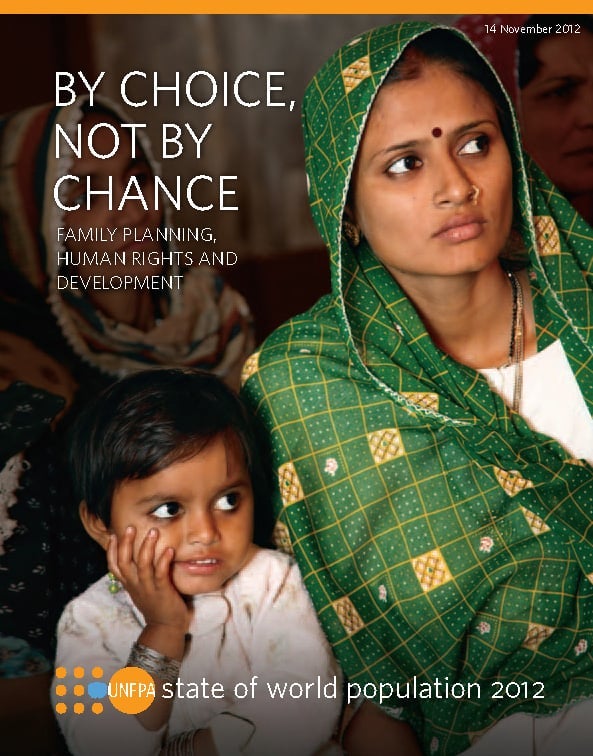VIENTIANE, Lao PDR - November 30, 2012. Making voluntary family planning available to everyone in developing countries would reduce maternal deaths and foster development by reducing costs for maternal and newborn health care by 11.3 billion U.S. dollars annually, according to an annual report published by the United Nations Population Fund (UNFPA).
The State of World Population (SWOP) Report 2012 entitled "By Choice, not by chance: Family Planning, Human Rights and Development" was launched in Vientiane by the Ministry of Planning and Investment (MPI) on November 30. The SWOP is based on a study prepared and developed globally by UNFPA to evaluate the situation of the different countries regarding the International Conference on Population and Development (ICPD) and the Millennium Development Goals (MDGs). It can be used as a reference for the government, development partners and civil society to better understand population dynamics and trends. The Executive Summary of the report has been translated into Lao Language and its available for download here.
This year's report states that increased contraceptive use has proven to reduce maternal deaths by 40 per cent by reducing unintended pregnancies. Thirty per cent more maternal deaths could be prevented by fulfilling unmet need for family planning.
Family planning helps avoid unintended pregnancies, which can have an adverse effect on the ability of a woman to enjoy a range of other rights. An adolescent who becomes pregnant, for example, in many cases she cannot continue going to school, and is thus deprived of her right to an education. An unintended pregnancy can endanger a woman's health, undermine her opportunities to earn a living and trap her and her entire family in a cycle of poverty and exclusion.
Each pregnancy increases a woman's chance of dying from complications of pregnancy and or childbirth. Maternal deaths are particularly high for young and poor women, those who have least access to family planning. This is particularly relevant in the context of Lao PDR, where at least two women die every day because of complications during pregnancy and childbirth.
HE Mr. Somchit Inthamith, Deputy Minister of Planning and Investment said "the Government of Lao PDR is commited to achieve MDG 5, improve maternal health, and to ensure that every woman, every man and every young person in the country has access to voluntary family planning. This will directly impact on achieving the other MDG targets in Lao PDR, as we ascend to graduating from the Least Developed Country status in 2020"
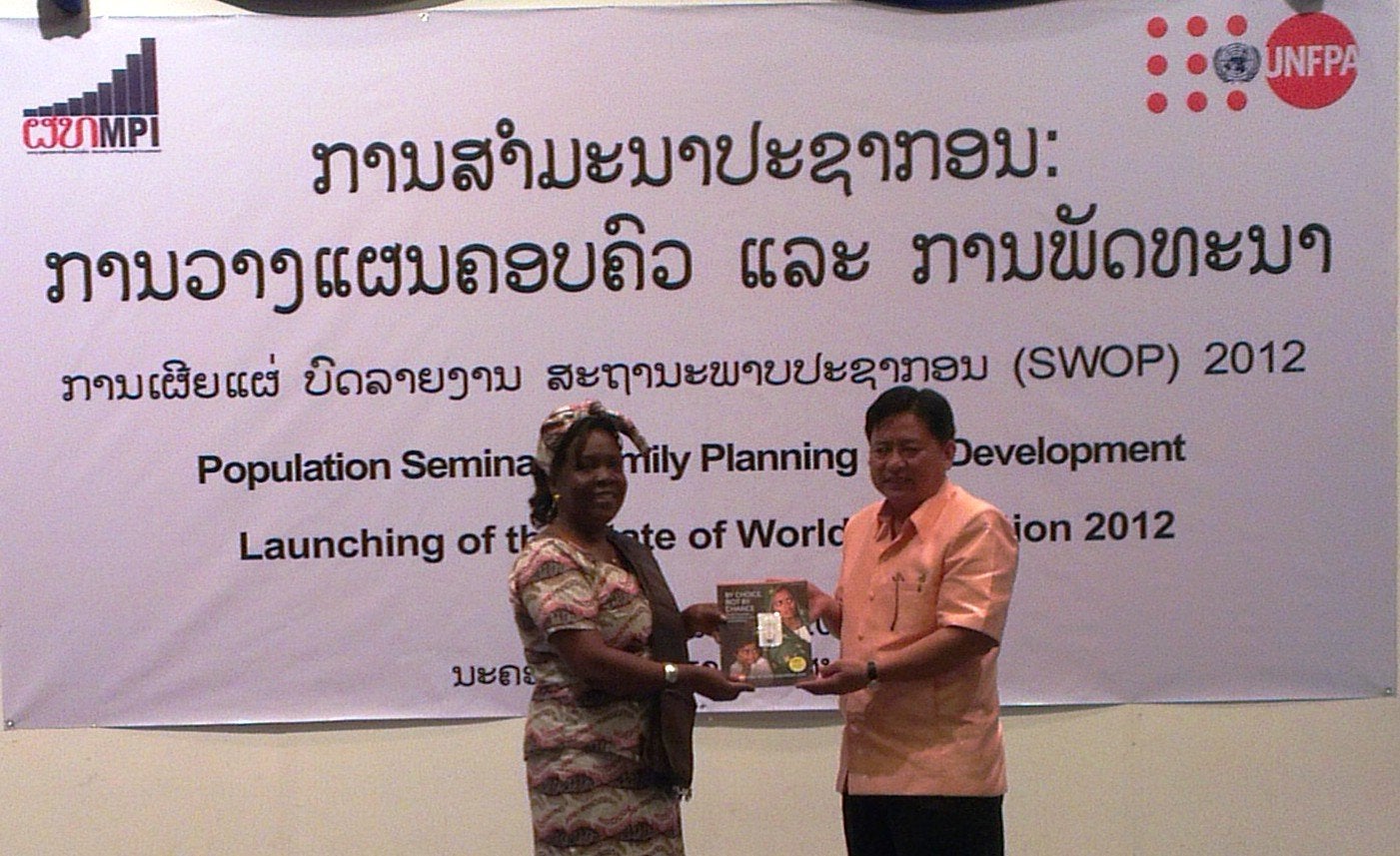
"Ensuring universal access to voluntary family planning is a matter of protecting human rights. But it is also a matter of economic and social development. Studies have shown that investing in family planning reduces poverty, increases participation in both education and the workforce and gives women a greater say in their households and communities. The result is higher incomes for families and improved prosperity for countries. Failure to enable women to make free and informed decisions about their own reproduction is a serious brake on social and economic development" said Dr. Esther Muia, UNFPA Representative.
Handover of Prizes
Within the framework of the event, MPI and UNFPA handed over prizes to the winners of 3 different contests organized throughout the year including:
- Essay Contest on "young people's reproductive health" addressed to young people
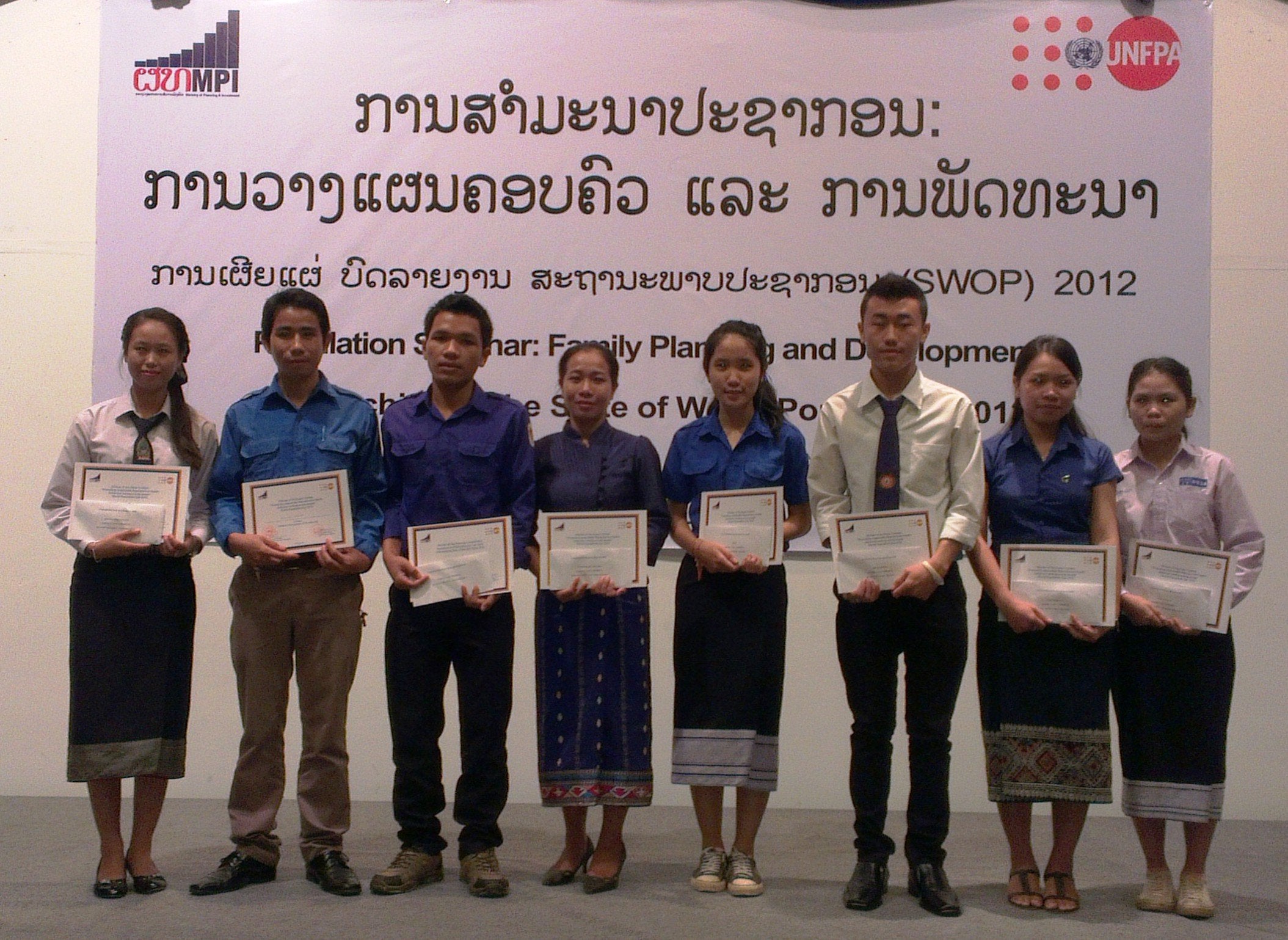
- Drawing Contest on "the importance of education for Lao girls" addressed to children with disabilities.
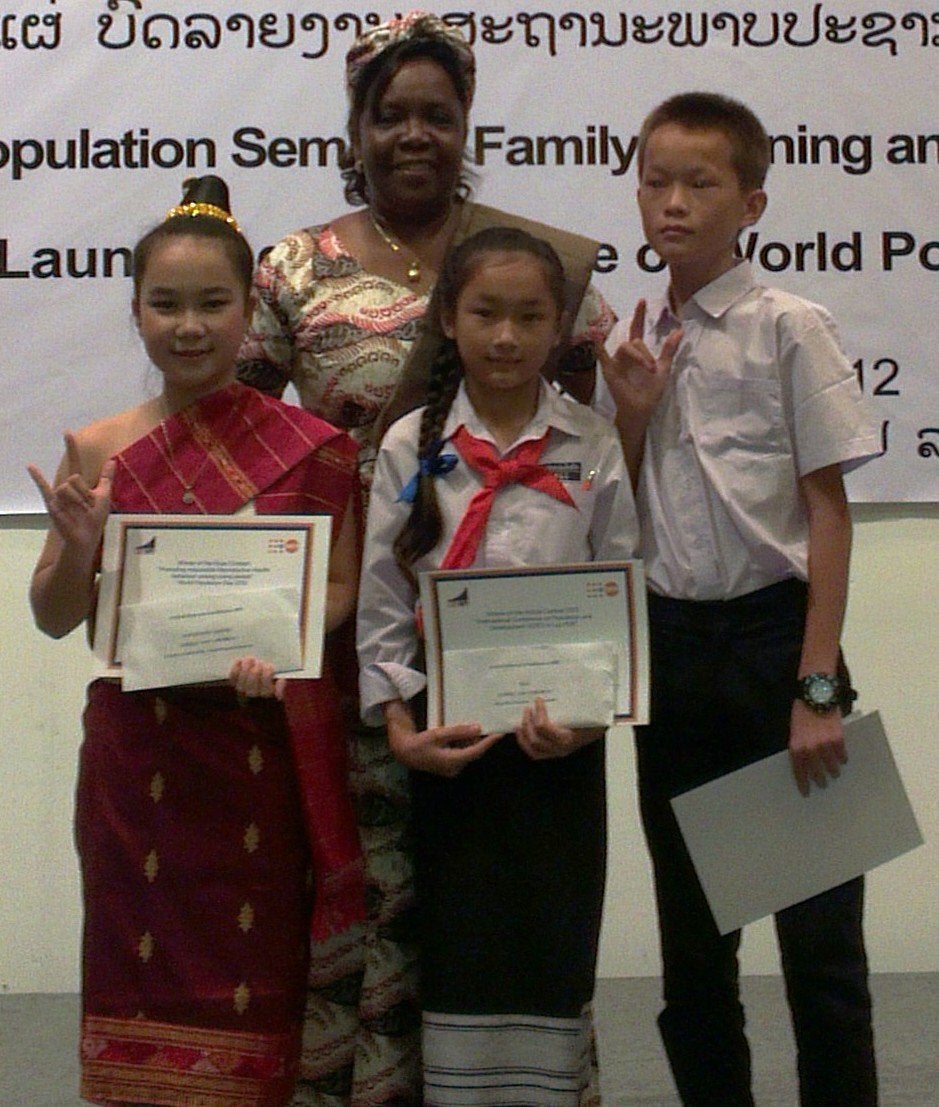
An exhibition with the best drawings was presented during the event.
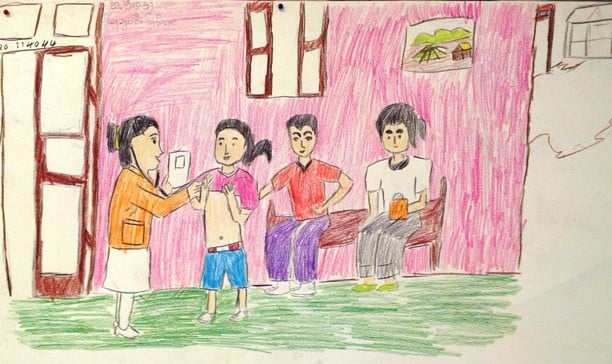
1st Prize

2nd Prize
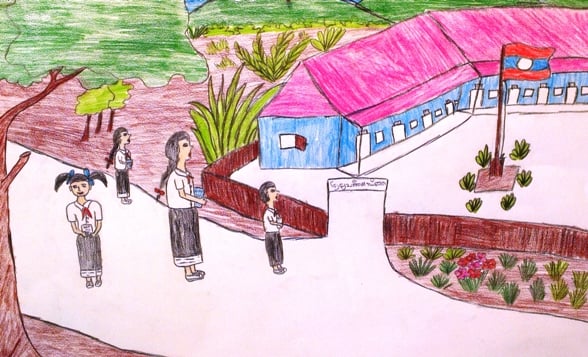
3rd Prize
- Article Contest on the "International Conference on Population and Development (ICPD) in the context of Lao PDR" addressed to journalists.
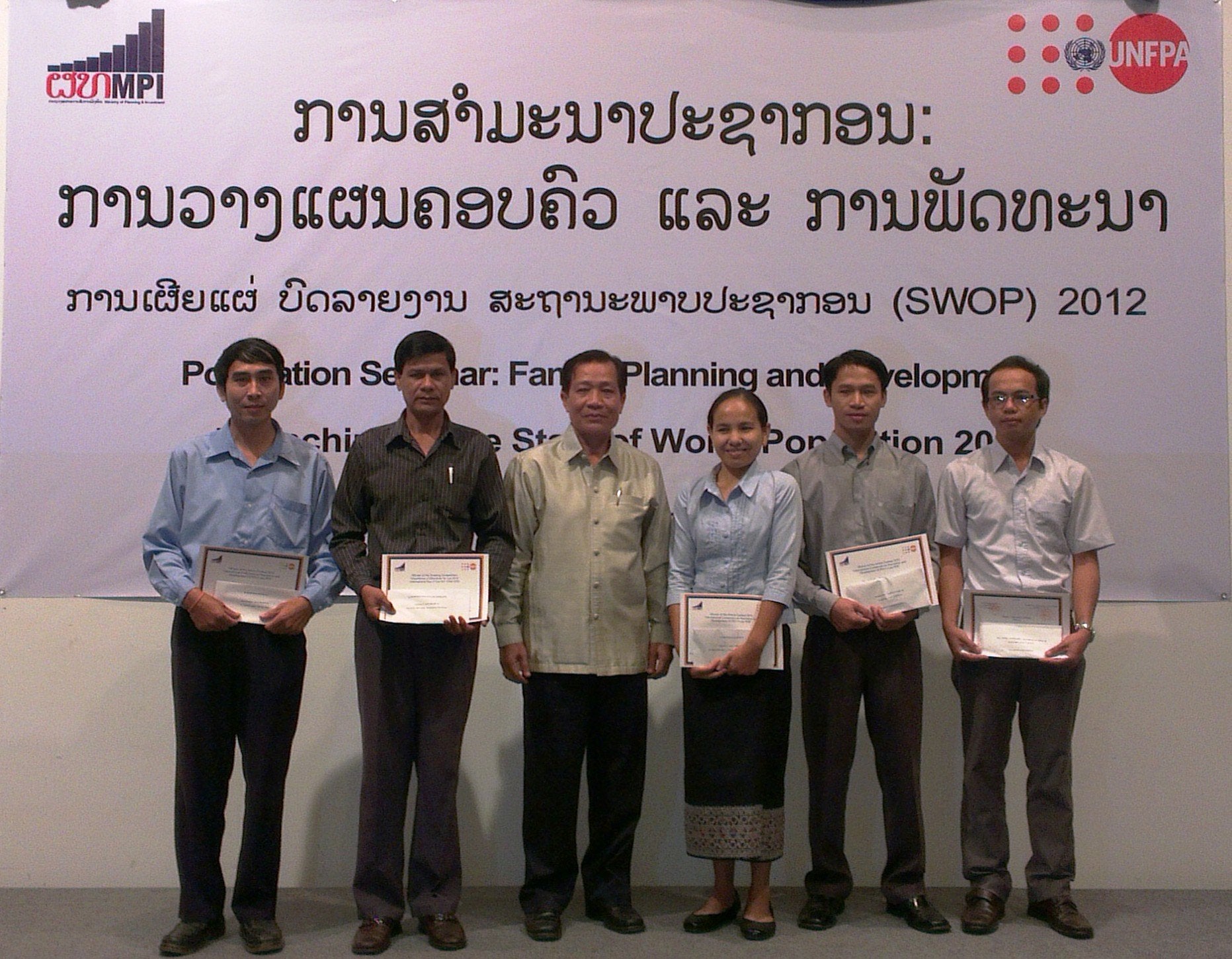
More Information about the State of the World Population Report 2012
Contact information: Mr. Diego De La Rosa, UNFPA tel:021-315547, mobile: 020-59936509 drosa@unfpa.org

